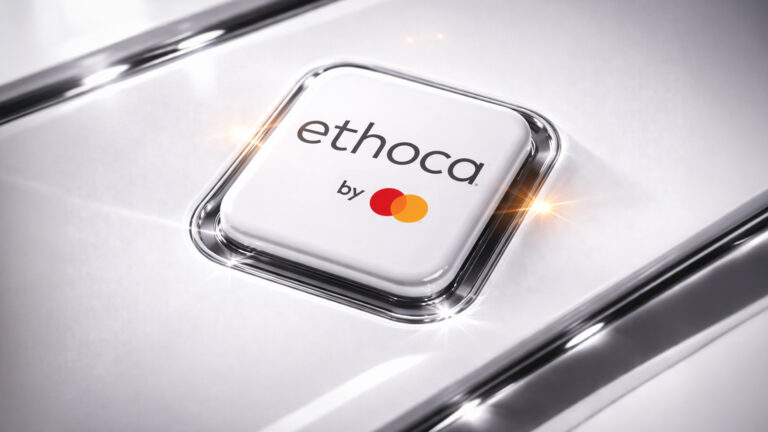The Ethoca Report on First-Party Fraud

First-party fraud has become a major risk for essentially every retailer. Various laws, regulations, and processes have made it relatively easy to take advantage of merchants. Unscrupulous cardholders can claim fraud on purchases they actually make to claw back money from a transaction. When successful, the cardholder gets both the goods and the refund from the merchant.
Unfortunately, chargebacks like these can be a serious risk, inflating operational expenses and resulting in hefty write-offs. Not only that, merchants will also have to pay a chargeback fee and sustain a penalty for processing fraud. Fortunately, there are some steps sellers can take to mitigate risks and also to successfully fight chargebacks.
Ethoca recently published an extensive report detailing the threat posed by first-party fraud and it’s certainly worth taking time to digest the findings. We’ll cover some of the key results but let’s consider what chargebacks are.
Of course, merchants may want to check out the full report themselves; it’s full of useful information. If you’re short on time, however, we’ll outline the key insights. To keep things simple, our analysis focuses on data from the United States, but the report also looks at data from the United Kingdom.
The Four Primary Types of Chargebacks
Ethoca notes that chargebacks typically fall into one of four categories. Not all chargebacks are fraudulent but each type can cause a lot of damage to a company’s finances.
Transaction Confusion
In some cases chargebacks are filed accidentally because the customer doesn’t recognize a charge on their credit card statement. In some cases that’s because the merchant used a different name than their public brand.
Chargeback Fraud
A cardholder can make a purchase using their credit card and then files a chargeback after the product is received, claiming it was fraud. If the chargeback is approved the merchant will lose revenue, the product, and will have to pay chargeback fees.
Third-Party Fraud, aka “True Fraud”
Unlike first-party fraud, true fraud is perpetrated by a third party who steals enough payment data to go shopping at the cardholder’s expense. Once the cardholder discovers such an unauthorized transaction, they invariably turn to their bank for a chargeback.
Often, payment information gets breached because the cardholder didn’t take the necessary precautions needed to secure their info. Regardless, the merchant is liable for processing fraud and may have to foot the bill.
Legitimate Refunds
Unfortunately, not every transaction will work out for the merchant or customers. For example, the customer never received the product, or there were quality control issues — any number of legitimate problems can occur during fulfillment.
If the merchants cannot or will not provide a refund the cardholder can turn to their bank. Often the card issuing bank will side with the card issuers. If so, the bank charges the amount paid back from the merchant account. Failing to provide or honor a return policy multiplies the likelihood of a chargeback.
Financial Institutions Views on Chargebacks and First-Party Fraud
As with most businesses, financial institutions (FI), such as a bank, want to keep their clients happy. As such, they have an incentive to approve chargebacks. Unfortunately, this tendency can make it more difficult for merchants to successfully challenge a chargeback dispute.
That said, many banks do try to keep an eye out for fraud and will challenge cardholders if the chargeback seems suspicious. Consider the following:
- 13 of 17 surveyed financial institutions pushed back against suspicious transactions at least 10 percent of the time.
- 7 of the institutions report that they pushback against potentially illegitimate chargebacks 60% or more of the time.
- 7 also believe that between 10 to 39% of disputes were likely fraudulent.
- 9 institutions believe transaction confusion made up less than 10 percent of disputes.
- 8 institutions reported that first-party fraud is on the rise.
- Three report that first-party is holding steady.
- Only two report a decrease.
Unfortunately, despite the perception among FIs that many transactions are fraudulent and that fraud is on the rise, many disputes move forward, thus burdening businesses. Six of the financial institutions report that 24 percent or less of transactions are either withdrawn or rejected. Just three FIs report that 40 percent or more of transactions are rejected or withdrawn.
Here’s Why FIs Allow So Many Chargebacks to Proceed
Many financial institutions recognize that first-party fraud is common. According to Ethoca’s report, many FIs want to combat fraud and to see improvements in how first-party fraud is handled. FIs don’t want to encumber merchants with the financial burden of first-party fraud. And yet, fraudulent activity seems to be on the rise.
One key challenge is that cardholders will shift complaints. A customer might first contact their bank alleging that their card was misused by a criminal. As such, they should be entitled to a chargeback. If the FI challenges this claim, the cardholder might claim that they were confused by the chargeback process and that while they made the purchase themselves, there were serious quality issues.
In these situations, card issuers find themselves in a tough spot. They want to fight fraud, but as the cardholder shifts blame and their narrative, proving first-party fraud is often difficult if not impossible.
Financial Institutions Open to Change to Combat First-Party Fraud
Executives representing 14 of the financial institutions surveyed reported that they would be interested in policy and process change. These executives expressed support for allowing merchants to share transaction data. Further, 14 reported that they either probably would or definitely would accept and evaluate data.
Merchant Views on First-Party Fraud
Perhaps a bit surprisingly, merchants in some ways may be a bit more optimistic regarding first-party fraud. Ethoca found that merchants blamed first-party fraud for “just” 23 percent of chargebacks, while also citing third party fraud for 10 percent.
Merchants pin transaction confusion for 58 percent of chargebacks. In most of these cases, merchants believe that the customer forgot they made the purchase.
Unfortunately, however, merchants aren’t seeing a decline with 39 percent reporting that chargebacks stemming from transaction confusion are increasing, and another 61 percent reporting that they’re holding flat. This means that essentially no merchants saw chargebacks decline.
With first-party fraud, half of the American respondents say that they’ve seen an increase, while the other half is seeing these chargebacks hold steady. Once again, no one is seeing a decline. On a side note, 95 percent of merchants from the United Kingdom are reporting that first-party fraud is on the rise.
Proactive Merchants Take the Fight to Chargebacks
Given how grave a risk chargebacks are, it’s wise for merchants to dispute them. Doing so protects revenue and deflects would-be fraudsters from your company to easier targets.
In the United States just under half 48 percent of merchants report that they challenge between 40 to 59 percent of chargebacks. An additional 37 percent fight 60 percent or more. Just 15 percent report fighting 24 percent or less of chargebacks.
Importantly, those merchants that don’t dispute chargebacks may fall behind the competition. At the end of the day, chargebacks increase costs, which in turn will get passed onto customers. Companies that don’t address disputes may not be able to maintain competitive prices.
The Takeaway For Merchants
Preventing and fighting chargebacks remains important. While card networks and dispute management platforms now offer myriad tools to address chargebacks, disputes are trending up. If merchants aren’t proactive, they could quickly get buried under financial penalties stemming from chargebacks. Merchants that process excessive chargebacks can and will get their processing terminated.
Fortunately, merchants may find ready and willing allies within financial institutions. Many FIs recognize that first-party fraud is a major threat. Many also want to prevent and reduce this elusive form of fraud. Remember, many banks will gladly look at evidence offered by merchants.
Ethoca offers vital tools for managing chargebacks. However, their coverage is limited to their market share of issuing banks. That said, it’s best to develop a comprehensive toolbox. Dispute management platforms can combine other solutions providers that will help you gather more data and cover more disputes.
First-party fraud isn’t the only risk either. As the Ethoca report highlights, transaction confusion is also a major threat. While the chargebacks stemming from confusion may not be malicious, they will still have a major impact on a company’s finances.
Merchants can develop dispute deflection strategies that help reduce transaction confusion. Simply improving billing descriptors could provide clarity and reduce chargebacks. Mastercard’s Ethoca and Verifi, a Visa company, both provide integrations that can enhance descriptors with additional transaction and fulfillment data; combined they can significantly deflect first-party fraud. Likewise, both companies offer dispute alerts to warn businesses of pending chargebacks. This will provide the company with a chance to contact a customer and clarify any confusion, or to refund true fraud disputes without chargebacks.
Further, merchants can adopt proactive approaches for countering fraud, which in turn could reduce chargebacks stemming from stolen credit cards and the like. Requiring Card Verification Values (CVVs), changed shipping addresses, and taking other steps can prevent criminals from using stolen payment credentials.
Addressing chargebacks and fraud takes effort but in the long run it pays off.








